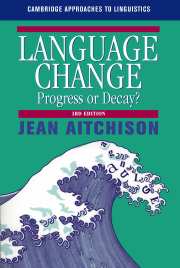Book contents
- Frontmatter
- Contents
- Preface
- Part 1 Preliminaries
- Part 2 Transition
- Part 3 Causation
- 10 The reason why
- 11 Doing what comes naturally
- 12 Repairing the patterns
- 13 The Mad Hatter's tea-party
- Part 4 Beginnings and endings
- Symbols and technical terms
- Notes and suggestions for further reading
- References
- Acknowledgments
- Index
12 - Repairing the patterns
Therapeutic changes
from Part 3 - Causation
- Frontmatter
- Contents
- Preface
- Part 1 Preliminaries
- Part 2 Transition
- Part 3 Causation
- 10 The reason why
- 11 Doing what comes naturally
- 12 Repairing the patterns
- 13 The Mad Hatter's tea-party
- Part 4 Beginnings and endings
- Symbols and technical terms
- Notes and suggestions for further reading
- References
- Acknowledgments
- Index
Summary
I consider that a man's brain originally is like a little empty attic and you have to stock it with such functions as you choose … It is a mistake to think that that little room has elastic walls and can distend to any extent.
A. Conan Doyle, A study in scarletMany people believe, like Sherlock Holmes, that the human brain has a finite capacity. Recent work on memory, however, suggests that such a view is mistaken. A healthy person's memory is indefinitely extendable provided that the information it contains is well organized, and not just a jumbled heap of random items.
Every language contains a finite number of patterns, as we have already pointed out. It is these patterns which enable humans to remember any language so apparently effortlessly. If the patterns were to break down, a person's brain would become overloaded with fragmented pieces of information. Efficient communication would become difficult, if not impossible.
As this chapter will show, language has a remarkable instinct for self-preservation. It contains inbuilt self-regulating devices which restore broken patterns and prevent disintegration. More accurately, of course, it is the speakers of the language who perform these adjustments in response to some innate need to structure the information they have to remember.
In a sense, language can be regarded as a garden, and its speakers as gardeners who keep the garden in a good state. How do they do this?
- Type
- Chapter
- Information
- Language ChangeProgress or Decay?, pp. 169 - 182Publisher: Cambridge University PressPrint publication year: 2000



